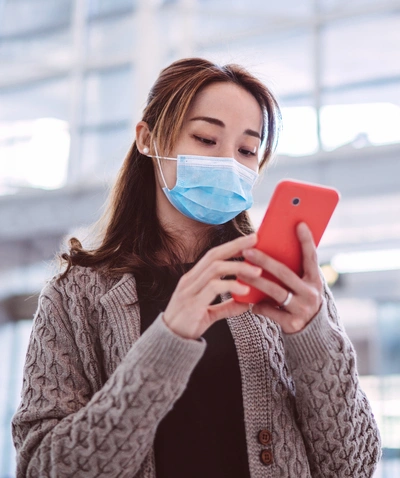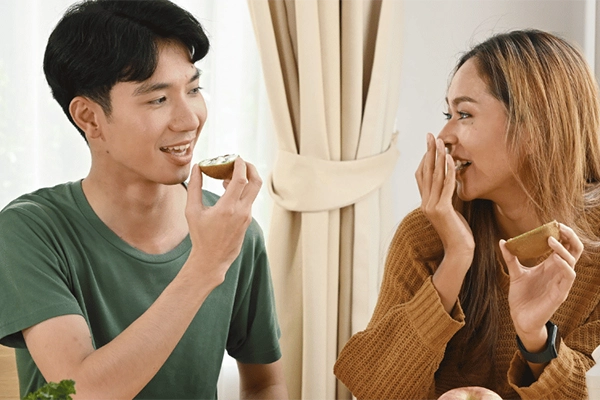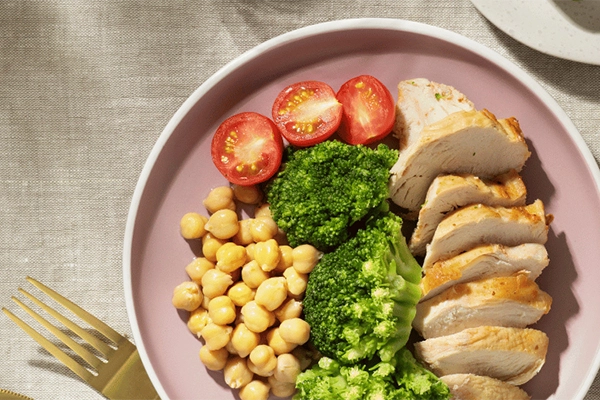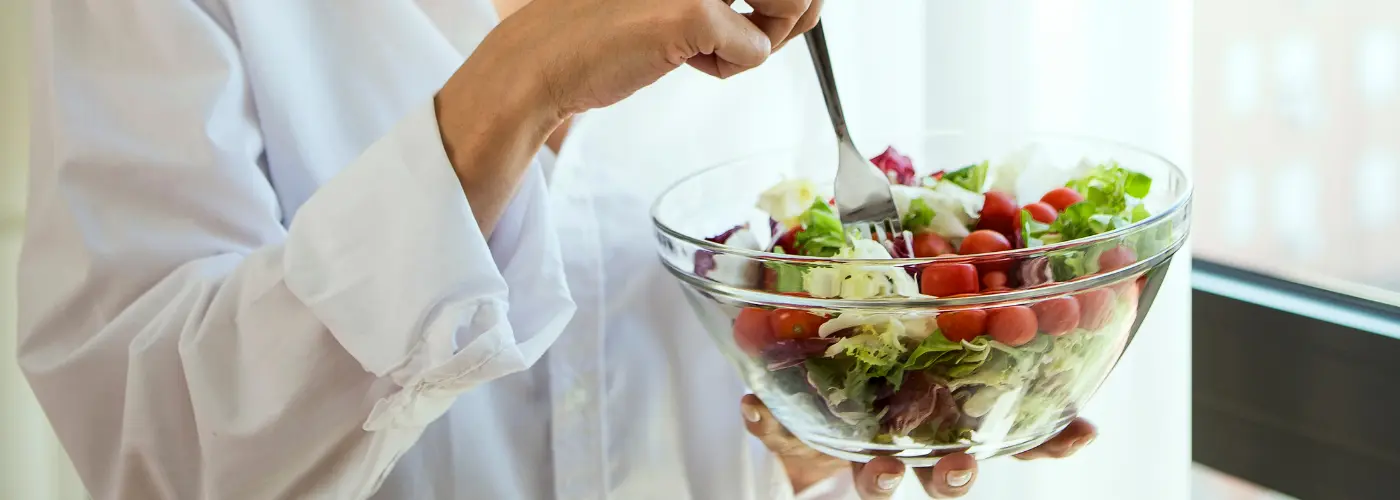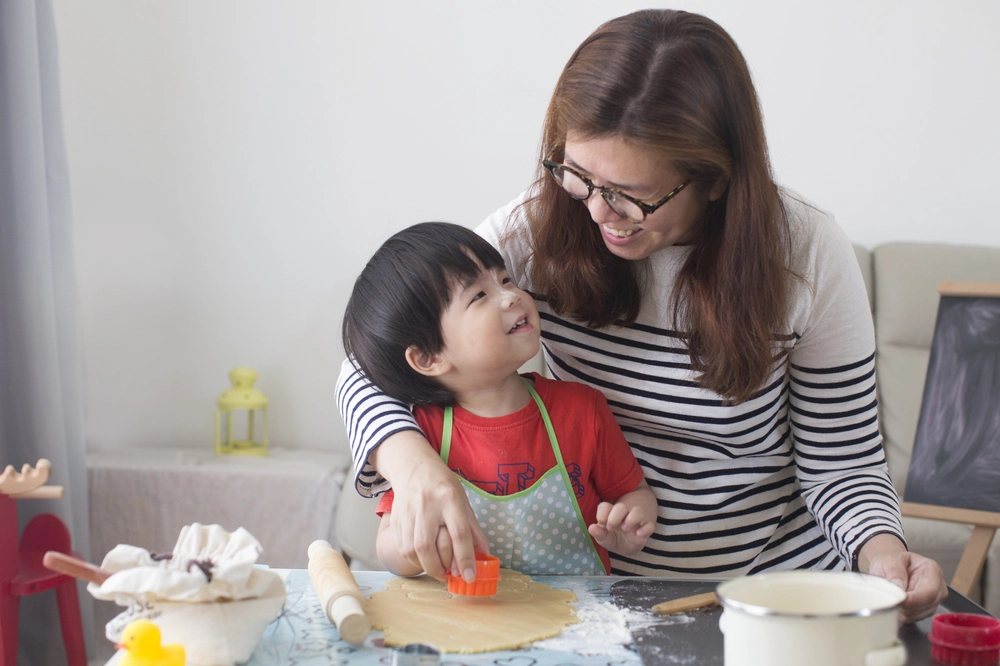Topics
Whether you or your loved one, navigating through cancer can be highly delicate and overwhelming.
Each person's medical profile is different, so their reaction to cancer treatment may vary. Before beginning treatment, be sure to address any possible side effects with your healthcare team.
Managing side effects of cancer treatment
Cancer treatments such as radiotherapy and chemotherapy can cause the following side effects:
- Nausea
- Vomiting
- Constipation
- Diarrhoea
- Fatigue
- Loss of appetite
- Taste changes
- Difficulty swallowing
- Mouth sores and pain
- Metallic or bitter taste
Dietary guidelines for cancer patients
A healthy diet is essential for cancer patients during and after cancer treatment.
Eating well can help you:
- Feel better
- Maintain healthy weight
- Recover better
- Strengthen your immune system
- Better tolerate the side effects of treatment
Here are some guidelines on what to eat to manage the side effects of cancer treatment.
Nausea and vomiting
- Eat foods that are soft and easy to digest.
- Eat smaller meals instead of large meals throughout the day.
- Eat citrus fruits like oranges, grapefruit, or lime.
- Ginger has bioactive compounds like paradol, shogaol and gingerol that help with nausea.
- Eat dry foods such as dry crackers and toast.
Constipation
- Increase dietary fibre intake. Good sources include fruits, vegetables, and oats.
- Drink enough water.
Diarrhoea
- BRAT diet - bananas, rice, apples, toast. These bland foods are better for your digestive system.
- Sip on clear broth or electrolyte-enhanced water to stay hydrated if you are losing fluids.
Loss of appetite
- After undergoing cancer treatment, you may be constantly feeling tired and no appetite for food. However, it is vital to get your nutrients for optimal recovery.
- Instead of bigger meals, you can eat 4-5 small meals daily and choose nutrient-dense foods.
Taste changes
- It can be tough to enjoy food when you cannot taste them properly.
- Consider incorporating a variety of herbs and spices into your meals.
- Eat your favourite food if you are not nauseated.
- Use sugar-free lemon drops, gum, or mints if your tongue tastes metallic or bitter.
Trouble swallowing or chewing
- Opt for soft foods like porridge, puree, soft-boiled eggs, or cooked cereals. You can also include high-calorie drinks like smoothies or milkshakes.
- Avoid spicy, hard, chewy, or acidic foods.
- Consider using a straw for soups and drinks.
Mouth sores and pain
- Opt for foods that soothe your mouth, like ice cream, frozen fruit, yoghurt, smoothies, and well-cooked meals like stews.
- Avoid acidic or spicy foods like tomatoes or oranges.
- Eat room temperature or cold foods instead of hot foods.
What should cancer patients eat?
A well-balanced meal with adequate nutrition is important.
- Ensure you have enough fibre and protein intake.
- Include healthy fats, such as those high in omega-3 fatty acids.
- Eat complex carbohydrates instead of simple carbs.
- Remember, drink enough water.
Avoid the following food types:
- Alcohol
- Deep-fried or fried foods
- Ultra-processed foods such as potato chips and junk food
- Refined carbohydrates such as white pasta, bread, and rice
- Undercooked eggs, fish, shellfish, meat, and poultry
- Unpasteurized milk or cheese
- Raw foods like sushi or raw beans
Make an appointment at Pantai Hospitals
Detecting cancer as early as possible is vital for a better prognosis. A panel of multidisciplinary team of cancer specialists will journey with you every step of the way.
If you or your loved one is a cancer patient, contact your doctor and the team of dietitians at your nearest Pantai Hospital about your daily nutrition requirements. Make mealtime as enjoyable and pleasant as possible.
To make an appointment for health screening, please contact the health screening centre at the Pantai Hospital nearest to you.
Learn more about cancer care and Oncology services at Pantai Hospitals.
Pantai Hospitals have been accredited by the Malaysian Society for Quality in Health (MSQH) for its commitment to patient safety and service quality.
References
- Modi M, Modi K. Ginger Root. [Updated 2021 Dec 4]. In: StatPearls [Internet]. Treasure Island (FL): StatPearls Publishing; 2022 Jan. Available at https://www.ncbi.nlm.nih.gov/books/NBK565886/ [Accessed on 30 June 2022]
- Chemotherapy-Induced Nausea and Vomiting: A Narrative Review to Inform Dietetics Practice. Available at https://pubmed.ncbi.nlm.nih.gov/26686816/ [Accessed on 30 June 2022]
- Foods to eat when you have diarrhoea. Available at https://www.healthline.com/health/what-to-eat-when-you-have-diarrhea#foods-to-eat[Accessed on 30 June 2022]
- Diet & Nutrition During Cancer Treatment. Available at https://www.cancersupportcommunity.org/diet-nutrition-during-cancer-treatment#:~:text=Limit%20high%2Dcalorie%20foods%20such,help%20you%20feel%20more%20full. [Accessed on 30 June 2022]


